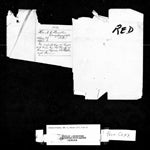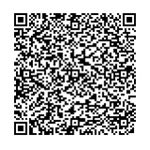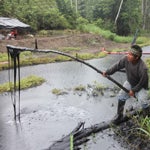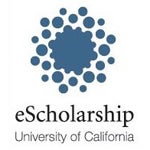This year the UC Davis Department of Native American Studies will host the official meeting of the Native American and Indigenous Studies Association (NAISA). The conference will be held at the Hyatt Regency in Sacramento, California. For more information go to http://naisa.nas.ucdavis.edu/
Home » UC Davis Events
Category Archives: UC Davis Events
Dr. Varese to speak at international conference
Date: Monday, May 28, 2018
Undefined
IRCA founder and Associate Director, Professor Emeritus Stefano Varese, will be speaking at the international conference with comparative analysis of the Indigenous Palestinian People and the Andean-Amazonian Indigenous peoples in his talk “El Estado oligárquico y las naciones indígenas en el Perú neo-liberal.”
Standing Rock Teach-in
Date: Tuesday, November 15, 2016
English
Open community event in the UC Davis Art Annex, everyone is welcome. Please share widely. Refreshments will be served and the teach-in will include:
- Welcome
- Reports, updates, photos from the folks returning from Standing Rock
- Q&A, updates
- Discussion of what the Davis / UC Davis community can do to send supplies, support.
- Paper, envelopes, and lists of letter writing targets will be provided. Attendees are encouraged to bring their laptops and devices to join in a collective letter writing blitz.
Bring your questions, ideas, and friends. Anyone interested is welcome to stay afterward to talk to others, join working groups, or learn other ways to help.
Hosted by the UC Davis Indigenous Research Center of the Americas (IRCA), the Department of Native American Studies, and the Strategic Native American Retention Initiative, among other allies.
The Art Annex is located south of the Art Building and about halfway between the Memorial Union and Mrak Hall on the UC Davis campus.
http://campusmap.ucdavis.edu/?b=21
Pollinating Ríos Vivos y Mesoamérica Resiste
Date: Sunday, November 15, 2015
English
Workshop/Conference “All our Relatives: Indigenous Peoples Epistemologies in Dialogue”
Undefined
UC Davis Campus: June 2 and 3, 2010
IRCA, NAS, the Collège de France (chaire d’Anthropologie de la nature), and the Laboratoire d’Anthropologie sociale (Paris) are convening a two-day workshop/conference on Indigenous Peoples Epistemologies in Dialogue as part of a research project sponsored by the France-Berkeley Funds. The purpose of the workshops is to expand and deepen an on-going dialogue that Anthropology and Native American/Indigenous Studies have maintained with the indigenous communities of the Americas on the epistemic challenges posed by indigenous peoples’ modes of knowledge and the interrelated cultural and social practices.
This particular field of the relation Culture-Nature among the Amerindians of the Amazon, the Andes and Mesoamerica has produced analytical studies that have both enlightened and questioned the structures and dynamics of the dualist paradigm that has dominated the last centuries of Euro-American science and humanities. The larger conceptual frame of this workshop/conference is the idea that indigenous peoples that are still deeply rooted in rural areas across the Americas either as horticulturalists and foragers – mostly in the tropical lowlands of South America – or as members of agrarian communities – indigenous peasants of the Andes and Mesoamerica – during millennia have developed cosmologies, gnosis and praxis that do not follow dualist Aristotelian worldviews nor the Judeo-Christian habit that separates nature from humanity, but rather an integrative cosmology that “animates” the whole universe as a socio-cultural dynamic construction. Philippe Descola has re-introduced the idea of “animism” as opposed to “naturalism” to describe this indigenous worldview and epistemology, whereas Stefano Varese has used the neologism “cosmos-centric” as opposed to “anthropocentric” to illustrate the same phenomenon. Although these types of ethnographic reasoning and techniques are not new in anthropology and have been practiced since the early 20th century, a renewed combination of historical-cultural analysis with bioscience and ecology is beginning to shed light on fundamental qualitative differences between environmental management, production and consumption in indigenous societies and contemporary industrial and post-industrial societies in their relations with nature for the same purpose of production, distribution, consumption and ultimately survival. Profound, comparative and thick ethnographic analyses of indigenous cosmologies, epistemologies and praxis – with the assessment of their success or failure- may certainly hold key interpretive elements of our own “modern” bio-cultural biases and contribute to redress fundame.
DOCUMENTS
All Our Relatives project description PDF.
Documento de trabajo PDF
Flyer for print quality in PDF format
PROGRAM
Wednesday, June 2
5:30-7:30 pm.
AGR Room, Buehler Alumni Center
Public Lecture and Reception:
Societies, Wholes, Collectives: an Ontological Perspective.
Professor Philippe Descola, Laboratoire d’anthropologie sociale and Collège de France, Paris
Thursday, June 3
9:00 am-1:00 pm.
Risling Room, 3201 Hart Hall
Panel Discussion:
Indigeneities as Other Knowledges
Participants:
- Philippe Descola, Lab. d’antropologie social, Paris
- Verena Stolcke, U. Autónoma de Barcelona
- Alexandre Surrallés, Lab. d’antropologie social, Paris
- Montserrat Ventura I Oller, U. Autónoma de Barcelona
- Victor Montejo, NAS-IRCA, UC Davis
- Inés Hernández-Avila, NAS-IRCA, UC Davis
- Bettina Ng’weno, AAS, UC Davis
- Julio López-Maldlonado, IRCA
- Everardo Garduño, U. Autónoma de Baja California,
- Marisol de la Cadena, Anthropology, UC Davis
Discussants: Stefano Varese, NAS-IRCA, UCD & Guillermo Delgado, UC Santa Cruz
Coffee break: 10:30 – 10:45 am
Primarily funded by the France-Berkeley Funds, and sponsored by the Indigenous Research Center of the Americas-IRCA, the Department of Native American Studies-NAS, and the Hemispheric Institute on the Americas-HIA.
Conference: “Discursive Practices” May 11-13, 2008
Undefined
Dates: May 11th – 13th, 2008
The conference “Discursive Practices: The Formation of a Transnational Indigenous Poetics” brings together scholars and writers from México, U.S., Canada, Bolivia, Colombia, Guatemala, that engage and/or produce indigenous literary creations. By making indigenous literature central to indigenous peoples concerns, the organizers hope to dispel the conventional idea that the indigenous experience needs mediation. The conference will provide a fertile continuation of dialogue for future scholarship in this area as well as a space for indigenous writers and intellectuals to know each other’s works. To a great degree, indigenous literary projects connect to social movements centered on cultural (re)vindication and human and cultural rights. And yet, the notion of “Writing Indians” continues to be perceived as an anomaly. The conference wants to facilitate the opportunity of dialogue between the indigenous writers of the Americas and re-establish their legitimate leadership as aesthetic creators of their own destiny.
For more information please visit the conference website.









